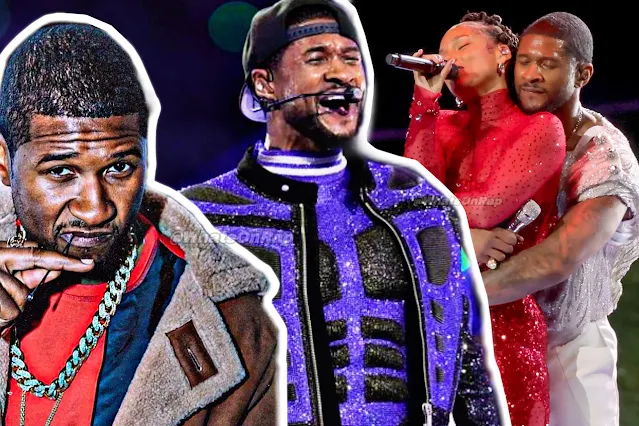Usher Reportedly Got Paid $671 to Perform The Super Bowl Halftime Show. He is Expected To Make Over $100M in Streaming Sales, Concert Tickets & Endorsements on The Back End
Usher's recent Super Bowl halftime performance stirred up quite the buzz. Reports surfaced that the Grammy-winning artist was paid a shockingly low amount of $671 for his appearance on one of the biggest stages in entertainment. While this figure may seem baffling at first glance, there's more to the story than meets the eye.
The $671 payment was the minimum allowed by the SAG-AFTRA union for such a performance, raising questions about how artists are compensated for their Super Bowl appearances. Despite this seemingly meager sum, Usher's financial gains from the event extend far beyond his upfront payment.
In the days following his halftime show, Usher experienced a significant surge in Spotify streams, with a whopping 550 percent increase. This spike in streaming numbers is a common occurrence for halftime performers and contributes to their overall earnings. According to Forbes, Usher's performance reached an estimated 200 million viewers, translating to a staggering $52.2 million in exposure value.
While the $671 payment may pale in comparison to Usher's overall earnings from the event, it's worth noting the broader impact of his Super Bowl appearance on his career trajectory. Despite a hiatus between hits and a Las Vegas residency that some saw as a sign of decline, Usher's halftime performance served as a revitalization, solidifying his status as a music icon for a new generation.
Usher Got Paid $671 For Performing at The Super Bowl Halftime Show:
Usher reportedly got paid $671 to perform the #SuperBowl halftime show ‼️😳. But he is expected to make over $100M in streaming sales, concert tickets & endorsements on the back end. pic.twitter.com/264aaVRbS5
— WhatsOnRap (@WhatsOnRap_) February 13, 2024
The debate over artist compensation for Super Bowl performances is not new, with many speculating that exposure rather than monetary compensation is the primary incentive for artists. However, Usher's case sheds light on the complexities of this issue and challenges assumptions about the financial arrangements behind these high-profile shows.
Despite the controversy surrounding his payment, Usher's halftime show has been lauded as one of the best in Super Bowl history, drawing comparisons to legendary performances like Michael Jackson's iconic 1993 show. While opinions may vary on the adequacy of his compensation, there's no denying the lasting impact of Usher's electrifying performance on the world stage.

